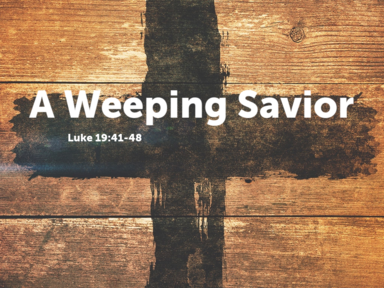A Weeping Savior

The triumphal entry follows the pattern of triumphal entries of the time.
However, there are distinct and important differences in Jesus’s triumphal entry into Jerusalem.
Jerusalem is symbolic of all of our hometowns and cities. We could weep for all our neighbors who know not the things that make for peace, for the unredeemed loneliness which results in destructive patterns. If we were really aware of the heartbreak in any average town, we would weep more than we do.
While this seems like an odd text for Palm Sunday, it is a reminder for us—as we enter into Holy Week—to be reminded of what Jesus ultimately came to do.
Life is a game of power politics. There’s no way to avoid it. In almost every relationship, a power struggle is going on, however unconsciously. Sometimes it’s thinly disguised in humor. There is the wife who confronted her husband one evening as he was reading the paper. “Honey, put your paper down. What do you think of this hat?” He said, “That’s the most ridiculous hat I ever saw. It doesn’t do a thing for you. Take it back.” “I can’t do that,” she parried. “This is my old hat. But since it offends you so much I’ll go right down and buy a new one that will please you.” This woman is a clever power politician.
Jesus comes into the temple, the ultimate place of religious significance in all Jerusalem, and tries to bring radical change and renewal. In his book, Self-Renewal, John Gardner said that no organization in the church, business, or government can survive unless from time to time it reexamines its purpose for being and returns to that original agenda; otherwise it gets deflected into all sorts of side issues.